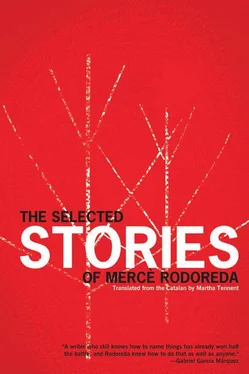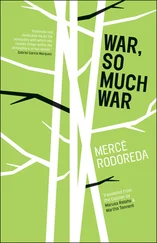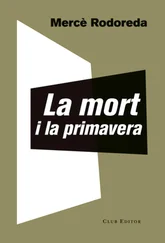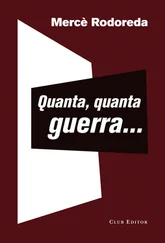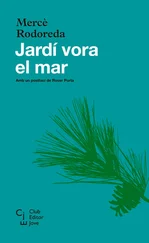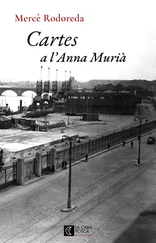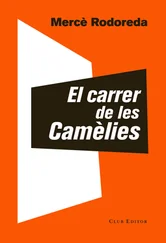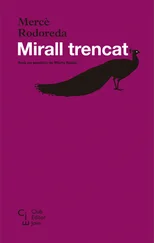“You’ll find it rather disorderly.”
We laughed.
We laughed because we both remembered his first visit to my room in the pension. On the door was a metal plaque: MÂRIUS ROIG, ATTORNEY. An elderly woman came to greet us, and he introduced her: “My family. This is Elvira, and she has been in the house for twenty years.” He introduced me as “My fiancée.”
On the floor in the foyer lay a heap of cement and sand. They must have gotten scattered, because the floor made a scratchy noise as we walked through he house.
“I have asked you to come because I want your opinion. As you can see I am renovating the house and I would like for you to. .”
“Why did you introduce me as your fiancée?”
“Because that is what you are.”
“Since when?”
“Since the day you spilled the drink on me. Ah, do you like the bathroom? Do you want it with a door to the bedroom and a door to the hall, or only to the hall?”
“Two doors.”
A wave of happiness flashed across his eyes, so powerful that it frightened me.
“That is the first time you have dispensed with the ‘Why?’”
“I haven’t dispensed with it. Why do you want my opinion?”
“Can’t you guess?”
“Yes, but I find that you do everything without thinking of me.”
“Quite the contrary. I do everything with you in mind. Is it not obvious?”
•
From my diary:
It was starting to grow dark by the time we left, and he walked me along unfamiliar streets. Suddenly we found ourselves in front of the café. I thought to myself, ah, it’s close to the house. I remembered the winter, that cold afternoon when I was in such a bad mood. It all seemed so far away, a bit sad compared to now. I’m starting to like flowers.
He took me to a concert. It was my first time in a concert hall. The program had Chopin, Ravel, and Mozart. When they played the last violin sonata by Mozart, I almost jumped out of my seat. He took me by the arm and gently pulled me back down. “I love you.” That was the first time he used the familiar form of the pronoun with me.
The world he’s offered me is limpid, and I feel good in it.
•
“What is it you wish to tell me?”
“Don’t laugh.”
“I promise I won’t laugh.”
“I’d like to have two doves.”
And we burst out laughing.
•
The dressmaker came to fit my wedding dress today. I had to stand for two hours. I was close to fainting when she finally said, “We’re through now. Are you very tired?” I was terribly pale, and I felt as if the dressmaker was still sticking me with her pins. I observed myself in the mirror, surrounded by tulle and silk lace, and thought, “A white ghost is looking at me.”
•
My uncle wrote me an exceptionally long letter. In a very formal style, he gave me permission to marry.
•
We were married at the end of summer. It was raining. The leached gray clouds, the tired light made my dress and orange blossoms seem whiter and the plants on either side of the church door greener. I remember the sound of the rain on the umbrellas, the red one as I entered the hotel, the black one as I entered the church. I didn’t want to take the dress off, ever. I felt like a different person in it, as if I were dead or some very old person traveling about after a long absence. We had dinner at home, alone, in the house that still smelled of damp cement and sand and paint. White roses had been arranged in the dining room, red roses in the bedroom. They gave off a caramel scent that annoyed me. He left me alone, and I opened the window and placed the flowers outside. I sat down in an armchair to rest for a moment and fell asleep. When I awoke he was sitting in front of me, gazing at me. I had an irrepressible desire to go out, stroll about, walk with him along the streets in my white dress. It was a dark night. The clock struck one as we left the house, not a soul on the streets. From time to time a gust of wind blew raindrops off the trees and with them the scent of earth and wet grass.
“Are they acacia trees?”
We stopped, and he embraced me.
“Content?”
“Happy.”
We must have been a good fifteen minutes from the house when it started to rain. The drops weren’t large, but they fell so heavily that they started to seep through my silk dress, leaving my back icy cold.
•
We were soaked head to toe by the time we reached the house. As soon as we entered, it began to rain harder. No words can describe how I loved that rain; the dull sound of it made me feel truly at home.
When dawn was breaking, he said, “Call me ‘Amor meu,’ my love.”
“Why?”
“Will you say it?”
“Amor meu.”
•
We spent our honeymoon in Venice and returned in the middle of winter.
•
The house was large. I ruled over the top floor, Elvira the ground floor: the two rooms overlooking the street — my husband’s office and the waiting room — the dining room, the kitchen, and a large parlor with a grand piano. Upstairs were the bedrooms, ours and the guest room; the bath; and a large, well furnished library with two balconies facing west. This is where I spent my time.
Mârius fell ill that winter. Influenza complicated by bronchopneumonia. That was when I met Roger, Mârius’s doctor, a friendly, optimistic fellow. Mârius considered him his best friend, his only friend really. One day when Mârius was convalescing, I went to the library to look for a book. When I couldn’t find it, I remembered that he had been reading it, and I thought he might have it in the briefcase he always kept by his side. I returned to our bedroom; he was seated facing the balcony, seemingly asleep. The briefcase was in the corner. I opened it and caught sight of a packet of letters between some of the files. A packet of mauve-colored envelopes, thirty perhaps. I’m not sure. I only know, I only recall that Mârius stood up quickly, came to me, and took the briefcase from my hands.
“What are you looking for?”
“The book you were reading, that you asked me for and I couldn’t find it in the library.”
“Why would you look for it here?”
•
That night I began to think about the letters and Mârius’s reaction. Whose were they? His? Had they been entrusted to him by a client? I sketched an entire novel around the letters. I was still awake when the sun rose. From the moment I met Mârius — since that day at the café—my memory of him had always been associated with the briefcase in his hand. Especially my visual memory.
Everything changed. Those letters. . he had taken the briefcase from my hand so abruptly. The letters represented something. What?
It was my birthday, and Roger was coming to dinner. I had been alone all afternoon. I had spent the time getting ready for the evening. I was going to wear what I had bought in Venice, the black crêpe dress and the open-toe shoes, their heels encrusted with green stones. I had pinned up my hair, had carefully made up my face and painted my fingernails. Just as I was about to put the dress on, Mârius came in. He had entered so quietly that he frightened me.
“Today’s your birthday, no?”
“Yes sir.”
“How many years?”
“Many.”
“Splendid.”
Splendid. He handed me a little box. I immediately thought: a piece of jewelry. I untied the gold ribbon and removed the tissue paper. Inside the velvet-lined box lay a diamond dove with its wings extended.
“I remember how you longed for a pair of doves; perhaps you will have the second one next year.”
I hugged him tightly, very tightly. The room was saturated by shadows and a gray, fleeting light. “Amor meu,” I whispered. I felt him bristle. I had the impression he considered those two words sacred, reserved only for the dark hours of the night. I was filled with anguish.
Читать дальше
